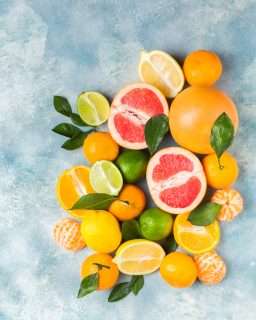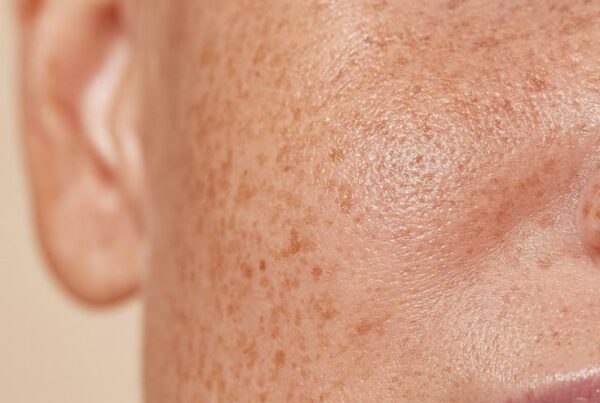 Over the last few years, collagen has gained popularity with health-conscious consumers. Wellness experts will have you believe that it can do anything from healing the gut to reducing anxiety. However, this is largely unproven. It’s now added to a wide variety of health, beauty, as well as wellness products. But what is collagen and is it a miracle cure-all?
Over the last few years, collagen has gained popularity with health-conscious consumers. Wellness experts will have you believe that it can do anything from healing the gut to reducing anxiety. However, this is largely unproven. It’s now added to a wide variety of health, beauty, as well as wellness products. But what is collagen and is it a miracle cure-all?
What is Collagen?
The simple answer is that it’s a protein. The most prevalent one in our bodies. It accounts for at least a third of the body’s protein composition. It forms the building blocks of bones, skin, muscles, tendons, and ligaments. It’s also found in other body parts, including teeth and blood vessels. This even includes the cornea of the eye. So, it’s the glue that holds our bodies together.
Types of Collagen
Although the word collagen is often used as a ‘catch-all’ phrase, there are as many as 16 different types. According to Healthline, type 1, 2, 3, and 4 are the key types to focus on.
Type 1
Type 1 accounts for a massive 90% of our collagen composition. It’s composed of densely packed fibers that provide structure to key components of the body. These include teeth, skin, bones, tendons, fibrous cartilage, and connective tissue.
Type 2
This is a more loosely packed structure of the protein and is found in parts of the body. Body parts that need to stretch, bend and move freely. This type is most prevalent in elastic cartilage, which cushions your joints.
Type 3
Prevalent in and used as a support structure for muscles, organs, and arteries.
Type 4
Aids in the filtration process and is found mostly in the layers of the skin.
Natural ways to increase your collagen
It’s important to remember that as you age, your body will produce less and less collagen. And what it does produce is of lower quality. Given that it’s so vital for key bodily structures, it’s a good idea to try to increase it through diet. If your diet is already rich in the right nutrients, supplements are another great option.

Photo by Anna Tukhfatullina Food Photographer/Stylist from Pexels
Collagen production can be easily increased. It starts as pro-collagen which is made through a process in which the body combines two amino acids — glycine and proline. A process that makes heavy use of vitamin C.
To aid the body in making this process as easy as possible, we should make sure to get plenty of these nutrients:
- Vitamin C: Most commonly found in citrus fruits as well as also being prevalent in bell peppers and strawberries.
- Proline: Prevalent in “egg whites, wheat germ, dairy products, cabbage, as well as asparagus, and mushrooms”
- Glycine: Found in “pork skin, chicken skin, and gelatin” as well as (to a lesser extent) in most foods that contain protein.
- Copper: Found in mollusks and clams as well as in “organ meats, sesame seeds, cocoa powder, cashews, and lentils”.
Foods that contain collagen
Foods such as chicken and pork skin contain a lot of collagen. However, it is unclear whether consuming more of these types of foods benefits the body. When you eat collagen-rich foods, they are simply broken down into amino acids. This means that the ‘pure’ collagen in the food doesn’t necessarily translate as more collagen in the body.
What’s damaging to collagen?
Sugar or Refined Carbs: Avoid too much sugar or refined carbs. Sugar interferes with it and prevents it from being able to repair itself.
Sun: Overexposure to UV rays can reduce the production of collagen in the body.
Smoking: Reduces collagen production and can cause wrinkles or stop wounds from healing.
The bottom line?
We’re all looking for ways to improve our health and keep our youth for as long as possible. And collagen plays an integral part when it comes to maintaining skin, muscles, teeth, and even cartilage. As you get older, it becomes more important to make sure that our bodies have the proper nutrients they require. To keep your skin elastic and healthy and make sure that it stays looking young, keeping up collagen production is vital.
Levels of collagen can be boosted in a couple of ways. For example, through supplements or by making sure your body has the right nutrients to support pro-collagen production. Healthy collagen levels can improve skin quality and muscle function as well as reduce pain associated with osteoarthritis.
References:
https://www.healthline.com/nutrition/collagen#nutrients-that-increase-collagen
https://nutritiondata.self.com/foods-009101000000000000000-w.html
https://nutritiondata.self.com/foods-000095000000000000000.html
https://nutritiondata.self.com/foods-000094000000000000000.html
https://nutritiondata.self.com/foods-000125000000000000000-1.html



![women [longevity live]](https://longevitylive.com/wp-content/uploads/2020/01/photo-of-women-walking-down-the-street-1116984-100x100.jpg)










